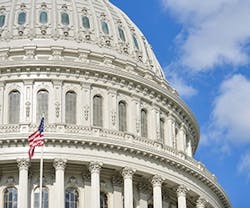Partisanship ruled in Congress for much of 2013, although the two parties did show some holiday spirit at its end by passing a two-year budget bill. What does this mean for 2014 and the real estate industry?
Major issues remain on the agenda, but 2014 is also a mid-term election year. The Republicans have their sights set on winning control of the Senate, while the Democrats hope to gain control of the House. The stakes are high.
The debt ceiling is the first major issue that Congress must address, and it may well set the tone for the year. Once it is resolved, Congress will likely address tax policies known as the "expiring tax provisions" or the "extenders" – a set of tax issues, mostly non-controversial, that routinely are extended year after year in one- or two-year increments. These stand-alone tax issues were not addressed in 2013 because Congress delayed action on smaller issues in hopes of moving forward on broad tax reform.
However, reform is unlikely to happen before November's elections, so Congress is likely to go back to the expiring (and expired) tax provisions. Of particular importance to the commercial real estate industry is an extension of the 15-year depreciation period for leasehold improvements. (The depreciation period reverted back to 39 years on January 1, 2014.) BOMA's hope is that the depreciation period is extended quickly and retroactively to January 1.
Terrorism Risk Insurance Needs Action
This spring, we also hope to see an extension of the Terrorism Risk Insurance Act (TRIA), which is set to expire at the end of 2014. When this law was enacted after 9/11, it was not envisioned by Congress or policyholders as a permanent program. However, the reinsurance industry remains incapable of adequately pricing the risk of a major terrorist attack on cities and buildings. Policyholders must be able to continue to purchase insurance at reasonable rates and terms. BOMA is urging Congress to extend this important program immediately before riders/policies expire.
We also expect to see the Senate take action on energy policy, though action in the House is uncertain. In 2013 an energy bill was derailed in the Senate, but a new version should be introduced in 2014. It will include many of the earlier amendments (at least those with widespread bipartisan support). With an expanded version of the bill, Senate leaders will be able to limit the number of amendments offered and thus improve its chances of moving forward. BOMA is hopeful that any amendments would clarify the role of the Department of Energy in the building codes development process and add a new "Tenant Star" to provide resources for occupants to improve their spaces.
We expect some positive actions in Washington this year, but the floodgates are not likely to open. Bills with the best chance of passage will be small and strategically targeted.
Karen Penafiel is vice president of advocacy, codes & standards for BOMA International. She can be reached at [email protected]. For more information on this and other topics, call BOMA International at (202) 408-2662 or visit www.boma.org.
